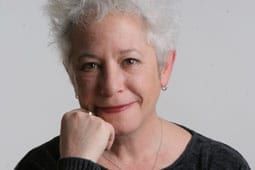Grammy Award-winning singer/songwriter Janis Ian has called Music City home for many years now. She's married to long-time Nashville resident and lawyer Pat Snyder, and the two wed in a small Canadian ceremony in 2003. A tribute to her immense talent, Ian's compositions "At Seventeen" and "Society's Child" are in the Grammy Hall of Fame. In an email interview with Out & About Newspaper, Ian offers her perspectives on teen bullying and the current state of the music industry.
As teenage bullying has increasingly been portrayed in the media, "At Seventeen" seems to take on a greater significance. What are your perceptions
Adolescence is a horrible time for anyone, particularly anyone perceived as "different." I'm not sure it's that much worse now than when I was young, though - I suspect it's just better reported, and less acceptable to the community at large. I was bullied, though we didn't call it then, for being Jewish, being short, being female, being smart. My mother taught me to throw a right punch, my father encouraged me to speak up to authorities. Frankly, the right punch was usually more effective. I'm not sure that's changed either.
The Grammy Hall of Fame has acknowledged the importance of your two major recordings, "At Seventeen" and "Society's Child", but it's hard to imagine now a young performer being able to tackle such weighty topics so early in his or her career. What are your thoughts on that and the future of the music industry in general?
People underestimate children, particularly young teenagers. I began writing songs at twelve, but most of my peers were doing something artistic, though it was often hidden from the adults - writing poetry, keeping journals, drawing. I don't think it's that unusual, really. As to the future of the music industry, I think it's healthier every day. Corporations don't like change, and once we became an "industry" rather than a "business", monolithic growth was inevitable. Fortunately, when things get too big they usually topple over and become smaller parts again.
What periods in your career or specific performances that make for your best memories? Maybe milestones or achievements that are more special as you look back on them today? Surviving...
You recently embarked on a short tour of Europe and the Middle East performing in a number of cities. From past experience, how do those audiences compare to your American ones? Hard to say... about the same demographically, and surprisingly mixed. Perhaps a bit more excited to see me because I'm not there as often. And overseas I only play concert halls and large clubs, whereas at home I try to mix it up between those and smaller venues, the "hot and sweaty gigs."
Most people know you as a performer of your own material, but artists from Roberta Flack to Bette Midler have recorded your songs. Do you have a favorite rendition of a song you've written or co-written?
Nope. I always think it's astonishing that I've written something universal enough for another artist to make their own. I will say that I love Celine Dion's rendition of "At Seventeen" though.
Aside from a couple compilation albums and a few scattered tracks, it's been a while since you've released a full-length album. Any plans for new music in 2012 or beyond?
Yes... and no... and not sure.
Throughout your life you've embarked on a number of interesting pursuits, from science fiction writing to serving as a columnist for GLBT publications. What have been your latest creative passions?
Trying to find the time to write more stories, and a couple of novels, and some picture books with my friend Natalia Zukerman, and some songs, and dozens of other things! When I think of retiring, I think of being able to stay home and write.
